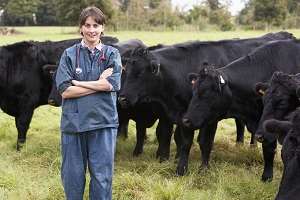When it comes to managing any cattle operation, herd health is one of, if not the top priority for producers. Especially with recent pressure coming from the consumer base, scrutinizing the use of antibiotics in modern production practices, says Dr. Tim Parks, manager of beef cattle technical services for MERCK Animal Health. Farm Director Ron Hays caught up with Dr. Parks recently for his advice to producers when it comes to staying current on managing your herd’s health program.

“We got to stay ahead of it,” Parks said. “We need to start thinking, ‘what things can we do?’ and prevention is one of those.”
Dr. Parks says it is important to remember that when a calf is born, it is what we as producers or veterinarians do from a management standpoint that will determine the viability of that calf and its ability to reach its genetic endpoint. He says producers need to be asking themselves, “what are we going to do and when are we going to do it?”
Using the right vaccinations for instance, is only half the battle. While vaccinating is using the right frame of mind on employing preventative measures, he says producers need to also consider the right timing for vaccinations. He recommends administering inoculations during periods of low stress, which will allow cattle to fully absorb the treatment’s benefit and perform their best. And with the Veterinary Feed Directive (VFD) coming into effect in just a few weeks, Dr. Parks says now is the time to make sure you have a solid veterinarian-patient relationship.
“We need to be working with veterinarians. You need to be sure you have a good relationship. Use their information, use their knowledge,” Parks said. “They concentrate in those areas that you live in and that you produce cattle in. So, really establish that veterinarian-patient relationship.”
Click here to see more...